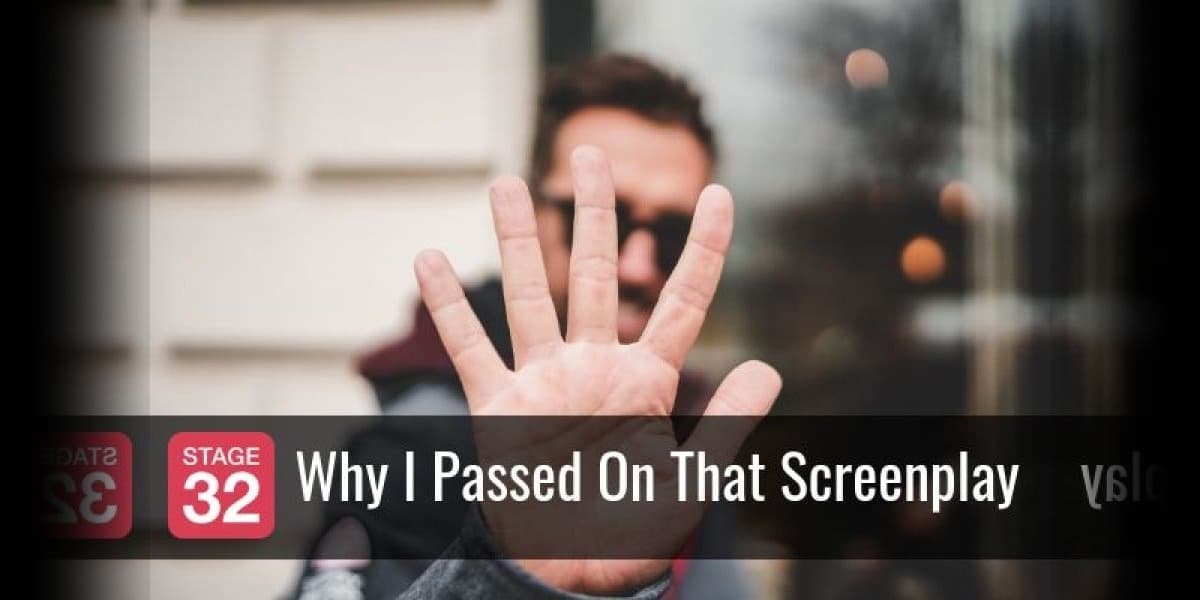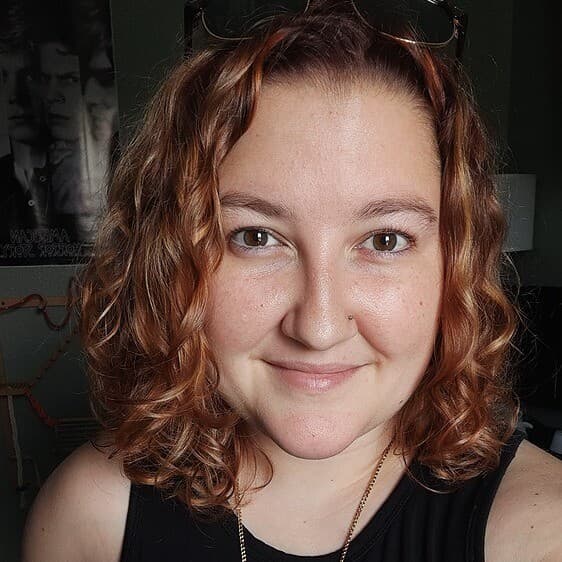Why I Passed On That Screenplay

For almost 10 years, I worked as a development executive for Unified Pictures and Exodus Film Group. One of my chief sources of income over the last year has been writing script coverage, writing development notes, and in general parsing screenplays for writers and producers. My friends, I have read a LOT of screenplays. If you’re an undiscovered screenwriter with more than three our four scripts out there on the market, there’s a fair chance I’ve covered you at some point.
Over the last few weeks, I’ve read a lot of discussion on Stage 32 about how and why institutional Hollywood has come to regard the overwhelming mountain of screenplays currently being produced by aspiring writers as a burden, rather than as an opportunity to discover the next great cinematic voice. Is it really even possible that the percentage of “bad writing” versus “good writing” is high enough to justify ignoring or throwing away literally an entire market full of spec scripts? How did we get here?
How the Spec Market Fell Apart

Most people working in development today, whether we’re talking about screenwriters, executives, or representation, did not come from a show business background, so we need to preface this conversation with the understanding that a huge majority of the people working in Hollywood today either don’t know or can’t articulate just what the hell is wrong with our development process. Most executives today come from business school, and most writers of substance come from a literary or journalistic background. To a literary or an advertising mindset, bad screenwriting is usually a problem of tone.
Nope. Good dramatic structure is about action, motivation, and conflict - scene work, in other words - just as surely as it is about act breaks and turning points. Most actors, directors, and writers who come from a classical performance background know these practices as a matter of habit, and we usually take it for granted that Hollywood greenlights productions with an eye constantly cast towards the fundamentals of drama. Because the vast majority of writers, executives, agents and managers never actually learned those fundamentals in the first place…
Things We Forgot We Knew
Almost every screenplay out there is written about passive characters. At a glance, I feel confident in saying that at least 93% of the screenplays out there on the spec market are either about passive protagonists or are hampered by weak conflict. Before we even start talking about whether a writer has any competence, before we start weeding out the racist and the sexist storytelling, before we start talking about whether a script is compelling or marketable on any level, we know that less than one out of every ten screenplays out there will have an active story to tell.
When we talk about “active” versus “passive” writing in film, we’re not talking about the difference between car chases and gunfights versus scenes about conversation and “character development.” Instead, we’re talking about scenes that are defined by how these characters are pursuing their missions and goals, versus scenes which are about how they react to this or that circumstance. With any form of acting, a character is defined first and foremost by the goal they are pursuing in the story. Every moment of that character’s screen time should be focused exclusively on the things they are doing to achieve that goal. Where the conflict comes from, in the context of action as the driving force of character, is from the fact that not everyone in a story wants the same things. In other words, goals are what bring characters into conflict.
Creative Priorities

In most of the development meetings I’ve had, this is the moment where the writer starts explaining to me that they know the fundamentals of screenwriting - and that the whole innovation and crux of their screenplay is that they’re working from a different set of priorities. Maybe they’re writing a comedy, and they’re putting an emphasis on the jokes over the action - and in specific response to this objection, please forgive me a brief tangent. Comedy in narrative storytelling is just a character ardently pursuing an action for which they are absurdly ill-equipped. When a little tramp tries to make it in high society, that’s funny!
So, maybe they’re writing a comedy and they let the action slide in favor of digging for unrelated laughs. Maybe the point of the movie is esoteric, and the writer is only interested in traditional structure insofar as they need to “sell” the likeability of the characters. Maybe the script has a visual hook too strong to be compromised for more classical ideas. Maybe the script is a biography or an adaptation, and the screenplay is accurately relating “what happened” according to the source material. In other words, the writer is assuring me that this script is a creative exception and that - essentially - the strength of the ideas and the appeal of the characters will carry the film or show. Right? RIIIIIIGHT?
Oof. Okay. Watch my six, dear reader, because I’m going in:
A Language of Action
Making a character “relatable” or “likeable” isn’t what makes an audience connect with them. All of us have seen audiences get behind a scoundrel or an idiot in a story with much more “sympathetic” characters sharing the screen, and we’ve wondered what made that one character so “likeable.” In every case, it’s because the character the audience fell in love with was doing something. Audiences connect to the mission, pure and simple. When a character is committed to doing something bigger than themselves, when they’re wrapped up in a goal that forces them to work so hard they’ll actually have to grow and become a more capable person to see the mission through, the audience wants to see that effort rewarded with success. It’s the mission that an audience connects to, and not some abstract metric of “sympathy” or “likeability.”
Unless there’s a core action pushing this story forward, just like an axle drives a car, nobody is going to care. No matter how much writers “sell” the characters or events of their story to the audience, no matter how visually appealing, intellectually challenging, or historically relevant a story is, audiences as a whole will not invest in anything but the efforts of another human being to achieve something greater than themselves. Whether that character succeeds or fails is not the point. Cinema is a language of action.
What makes this problem so hard for so many agents, managers, and development executives to ferret out is that there are a huge number of legitimately good writers out there writing bad screenplays. In literature, writing succeeds on the strength of a novel’s themes, on the strength of the language… and generally, of the writing! Screenwriting, in contrast, really is just about assigning actions to actors and setting them in motion. In the end, we might as well be writing textbooks and homework assignments.
On screen, even dialogue is just a form of action. Characters don’t speak for aesthetic reasons, they speak because they’re using their words to an end. Seducing someone, convincing someone, bullying or threatening someone - these are things that one person does to another person in the pursuit of a goal. In screenwriting, actions like these are literally the only legitimate reasons for a character to open their mouth. Ever.
The Industry Standard

Imagine, just for a moment, that I’m not describing “the ideal screenplay.” Imagine that instead, these principles are a baseline for good screenwriting. Imagine that I have passed on literally every single screenplay that failed to meet the standards of dramatic structure that I am describing in this article. How tired of reading screenplays do you think I am right now?
Our executives and reps can sense that something is horribly broken about the spec market, but they don’t have the training or the vocabulary to put their finger on the problem. So instead, they just stopped reading screenplays altogether. How do I know this? Because if these agents and producers were reading screenplays, I wouldn’t be writing their coverage.
Passive storytelling is the problem with our spec market, and right now the problem is getting worse rather than better. If there was some way to reboot the spec market, I’d push that red button in a heartbeat. If I could delete all the content that’s out there right now and educate the writers, executives, and reps about basic scenework as a fundamental value in screenwriting, the overall improvement in the quality of our media would outweigh even the loss of those few works of undiscovered genius that must be floating around in the ether.
How We Get There
Screenwriters, please start taking acting classes. Put the principles of action and motivation into your bodies, and forge strong habits of them. Learn to find your lines of action and execute your scenework just like a Marine field-strips a rifle. This is your weapon, screenwriters.
Do this for yourself, because this is one note your managers and readers don’t even know they need to give you. Nobody learns this stuff in business school. Nobody learns this in journalism. Nobody learns this in advertising. Most of you have a strong grasp of language, and some of you write beautifully. Now please, write something I can put a “consider” on.
Since the beginning of this year, screenwriter Tennyson E. Stead has written feature films for Emagine Content and Be the Change Productions. Of the 30 screenplays Stead has written, seven are produced, sold, or under option. Currently, Stead is working hand-in-hand with some of New Hollywood’s brightest producers, performers, and production talents to develop a slate of independent sci-fi and fantasy features under his “repertory film” label 8 Sided Films, which will launch with the sci-fi heist movie Quantum Theory.
Other Stage 32 Posts By Tennyson Stead:
Reality Checks from an Inspirational Cripple - Part 1
Reality Checks from an Inspirational Cripple - Part 2
How We Screwed the Showbiz Culture Up and How We Can Fix It
What is Spectacle in Film [And How Can Indie Filmmakers Use It?]

Tennyson E. Stead an award-winning writer and director who has written 25 screenplays in total, and sold or optioned eight. In addition to almost 30 years of production experience on stage and screen, Stead carries a decade of experience as an independent film development and finance executive. Today, Stead's primary labors revolve around writing, directing, and developing cinema and online content as the founder of a repertory film company called 8 Sided Films.
Let's hear your thoughts in the comments below!
Got an idea for a post? Or have you collaborated with Stage 32 members to create a project? We'd love to hear about it. Email Joleene at joleene@stage32.com%20and let's get your post published!
Please help support your fellow Stage 32ers by sharing this on social. Check out the social media buttons at the top to share on Instagram @stage32online , Twitter @stage32 , Facebook @stage32 , and LinkedIn @stage32 .
About the Author

Tennyson Stead
Director, Producer, Screenwriter
Tennyson E. Stead is a master screenwriter, a director, a worldbuilder, and an emerging leader in New Hollywood. Supported by a lifetime of stagework, a successful film development and finance career, and a body of screenwriting encompassing more than 70 projects, Stead is best known for writing an...





